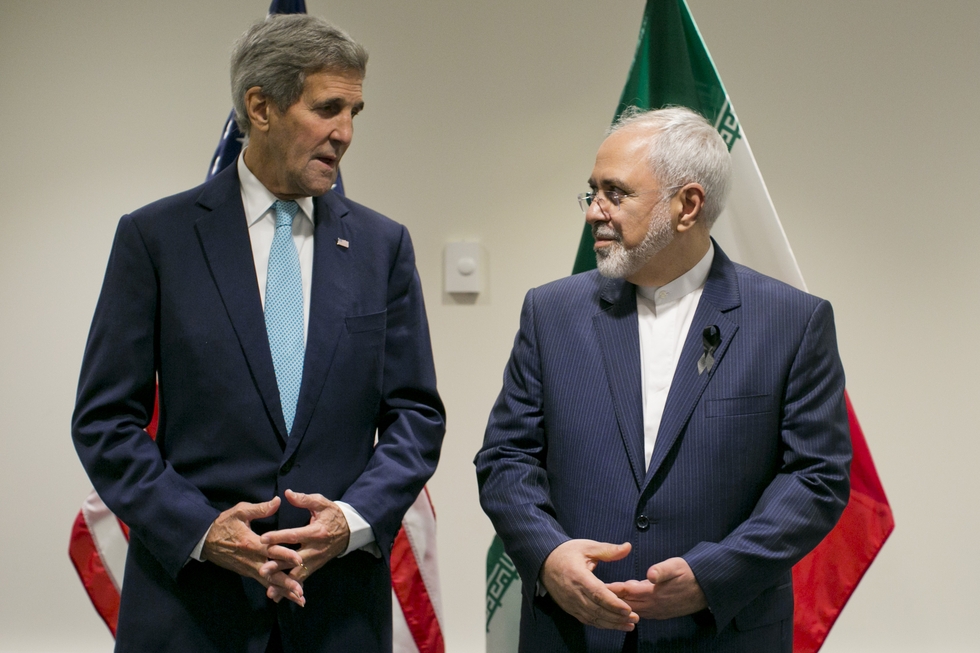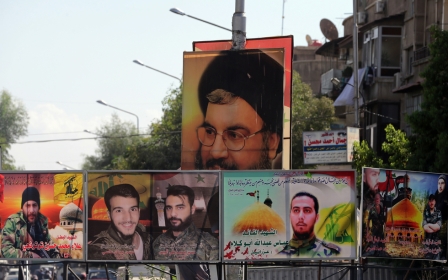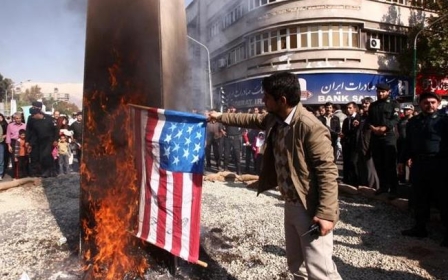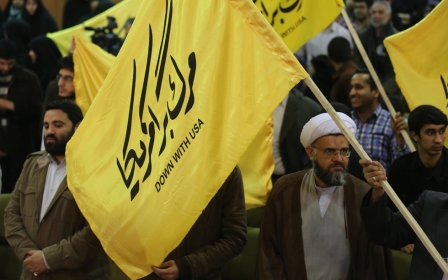Fighting Daesh: The dilemma facing US and Iran

In the face of the recent terrorist attack in California, President Barak Obama, in his 6 December televised speech, promised that the air strikes against Daesh (also known as IS, ISIS, or ISIL) would be intensified. He asserted that a growing coalition of nations in the war against Daesh would eventually yield significant results. However, he did not announce any shift in strategy, primarily with regards to sending troops to Syria or Iraq.
Daesh has suffered a number of major defeats, some in recent months. The group failed in their attempt to capture the Kurdish city of Kobani in Syria, and it lost control of Mosul Dam, Tikrit, and just recently, Sinjar in Iraq. In November, they also lost the strategic Kweiris airbase near Aleppo.
Despite these losses, strategists overwhelmingly agree that without boots on the ground, it is next to impossible to decisively win the war against this brutal, radical group.
The dilemma is that Obama is vehemently opposed to sending American troops into this war. Given the experiences around the US’s involvement in two major wars in the region (Afghanistan and Iraq), Obama’s reasoning is sound. “We should not be drawn once more into a long and costly ground war in Iraq or Syria. That’s what groups like ISIL want. But they also know that if we occupy foreign lands, they can maintain insurgencies for years, killing thousands of our troops, draining our resources, and using our presence to draw new recruits,” President Obama remarked.
The US tried a “train and equip” programme in Syria. It was a staggering failure as were similar programmes aimed at training Afghanistan’s and Iraq’s army. In the case of Mosul, 30,000 Iraqi soldiers fled from 800 Daesh fighters.
There are rumours surrounding the potential deployment of Sunni Arab troops to Iraq to fight Daesh. These classical forces will most likely face the same fate that NATO forces have faced in Afghanistan. To conclusively win the war against Daesh, motivated fighters, who hold their beliefs as strongly as the extremists hold theirs, are required. So far, only two groups have exhibited this characteristic: the Syrian Kurds and the Iranians along with their proxies.
Can America rely on the Kurds to bring the war against Daesh to a decisive end? The reality is that the Kurds are fighting for territory to create a new, independent Kurdistan. Therefore, they are unwilling to strategically engage in combat with Daesh in the country as a whole. And this is understandable. They do not want to fight other people’s battles.
Iran, however, has both ideological and political reasons as well as survival imperatives to wholeheartedly engage in battle against Daesh, the Shiites' staunch enemy. Iran’s large presence in Syria and Iraq through its close proxies makes Iran a potential, highly effective ally for the United States in its battle against the extremist Salafi organisations, primarily Daesh. However, there are a number of obstacles impeding the formation of an alliance between Iran and the US.
The US’s regional allies, including Israel, Arab states such as Saudi Arabia and, to a lesser extent, Turkey, will oppose any such alliance. Is this an insurmountable obstacle for the US? The experience garnered through finalising the nuclear deal with Iran showed that even though there were fierce objections to the deal by regional actors, at the end of the day it was manageable.
The fate of Syrian President Bashar al-Assad could be another major point obstructing the formation of such alliance. But John Kerry believes that an agreement on the future of Syria is within reach. “We’re weeks away conceivably from the possibility of a big transition for Syria, and I don’t think enough people necessarily notice that. But that’s the reality,” Kerry remarked following the 14 November Vienna summit in which all the region’s states had participated.
However, the main issue is that Iran’s leader adamantly opposes any talks or dealings with the US.
Many analysts in Iran and the West expected that the formation of the historic nuclear agreement between Iran and the six world powers would pave the path to more talks and eventual reconciliation between Iran and the United States. However, following the conclusion of the nuclear talks, Iran’s Supreme Leader Ayatollah Ali Khamenei, in a fiery speech, made clear that Iran’s stance toward the US will remain unchanged. He stressed: “We will not hold any negotiation with the US over the bilateral, regional and global issues.”
While this position was a reflection of the domestic imperatives imposed on Iran’s leader, America also played a role in this respect. Shortly after the nuclear deal was inked by Iran and the major powers, John Kerry, in his testimony before the Senate Foreign Relations Committee, made it clear that the US’s stance toward the Iranian government, despite reaching an agreement on Iran’s nuclear programme, has not changed. “I have extensive plans … about how we're going to push back against Iran's other activities, against terrorism, its support, its contributions to sectarian violence in the Middle East and other things,” Kerry remarked.
The Iranian leadership mistrusts American motives in the battle against Daesh. Although the Americans have conducted significant air campaigns resulting in the defeat of Daesh in Tikrit and Kobani, as well as killed top Daesh figures, they stood by as spectators while armoured Daesh convoys were moving toward Ramadi through a central road in May.
This happened despite the fact that US intelligence and military officials “had significant intelligence about the pending Islamic State offensive in Ramadi” according to reports. General Qasem Soleimani, commander of the elite Iranian Quds Force, blasted US inaction. Soleimani asked, “Does it mean anything else than being an accomplice in the plot?”
However, these inconsistencies may be the result of Iran’s refusal to participate in “bilateral” interaction with the US and its emergence as a major, hostile force to US interests in both Iraq and Syria.
The decision-making apparatus in Iran wrongly believes that the outcome of this war with Daesh will be determined on the military front. They ignore the fact that confrontation and competition with the US can significantly complicate this war, which will make their objectives extremely costly and much more arduous to achieve.
They also disregard other major fronts where American influence can be the key to success - namely, the exchange of intelligence, blocking Daesh’s access to funds, pressuring Turkey to seal its borders in order to prevent foreign fighters from joining Daesh, and silencing the group’s online and social media activities.
Iran’s cooperation with the US could eliminate the factor of Iranian threat and encourage the US to take serious steps, especially in regard to pressuring Turkey to close its Syrian borders.
According to a recent report, the number of foreign fighters in Syria has more than doubled, from 12,000 to 27,000, since June 2014. These non-military fronts, in which Russia is incapable of playing an effective role, are significant in this battle.
The bottom line is that both the United States and Iran consider Daesh a mortal enemy. Competition between the two states will only help Daesh to survive. Defeating this enemy hinges on cooperation.
Is cooperation between the United States and Iran possible? Absolutely. Under the presidency of Mohammad Khatami (1997-2005), Iran cooperated with the US and played a key role in toppling the Taliban and establishing Hamid Karzai’s government, which was the US preference.
- Shahir Shahidsaless is a political analyst and freelance journalist writing primarily about Iranian domestic and foreign affairs. He is also the co-author of “Iran and the United States: An Insider’s View on the Failed Past and the Road to Peace”.
The views expressed in this article belong to the author and do not necessarily reflect the editorial policy of Middle East Eye.
Photo: United States Secretary of State John Kerry poses with Foreign Affairs Minister of Iran Javad Zarif during a bilateral talk at the United Nations headquarters on 26 September, 2015, at the United Nations in New York (AFP).
New MEE newsletter: Jerusalem Dispatch
Sign up to get the latest insights and analysis on Israel-Palestine, alongside Turkey Unpacked and other MEE newsletters
Middle East Eye delivers independent and unrivalled coverage and analysis of the Middle East, North Africa and beyond. To learn more about republishing this content and the associated fees, please fill out this form. More about MEE can be found here.





